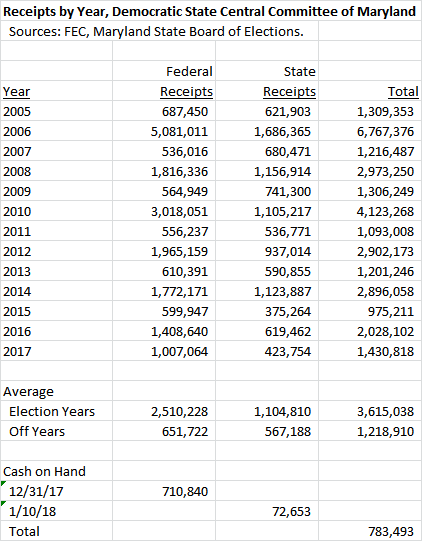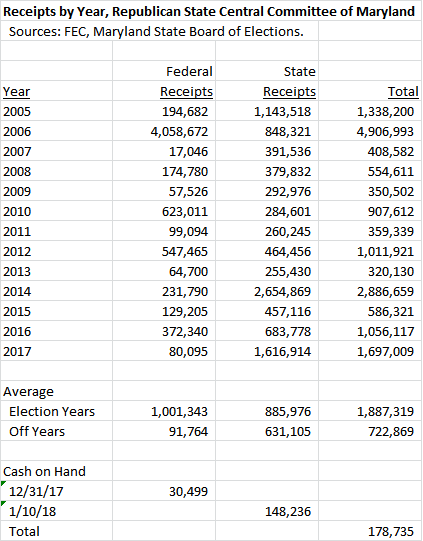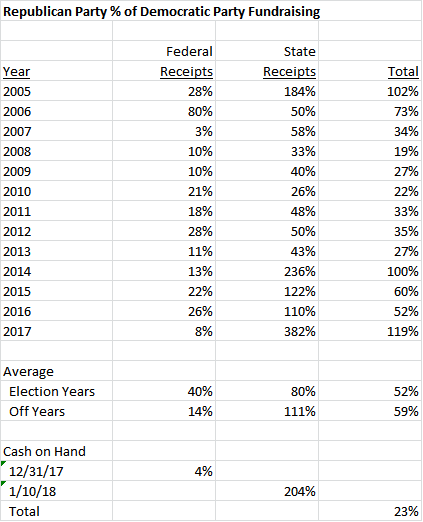By Adam Pagnucco.
Maryland is a majority Democratic state. So one would expect that in financial competition between the two state parties, the Democrats would blow the Republicans away. That may have been the case a few years ago, but not anymore.
In Maryland, the two state parties have two campaign accounts each: a federal account used for promoting federal candidates and a state account used for promoting state and county candidates. Contributions to the federal account are regulated by federal election law while contributions to the state account are regulated by state election law. Both federal and state money can be used for purposes like paying staff, voter registration and voter turnout so there is a bit of flexibility in use. There are a few local party accounts but they are dwarfed by the state parties.
Below is the distribution of federal and state fundraising for the Democratic State Central Committee of Maryland. A few things stand out. First, because there are many Democratic federal elected officials, federal fundraising often exceeds state fundraising. Second, election year receipts are far greater than off-year receipts. Third, the presence of a Democratic Governor and/or a marquee federal race (like the 2006 U.S. Senate contest between Ben Cardin and Michael Steele) is good for fundraising. In 2017, the first year for current Democratic Chair Kathleen Matthews, the party exceeded its off-year pace in federal money but slightly lagged its typical state fundraising. Still, despite not having the Governor’s seat, the party did pretty well and finished 2017 with almost $800,000 in the bank.
Below is the same information for the Republican State Central Committee of Maryland. The GOP’s federal fundraising is often puny due to its lack of federal elected officials. (The 2006 race involving Michael Steele was a big exception.) But in state money, the Republicans do better than the Democrats when they have an incumbent Governor. They have led the Democrats in state fundraising four years in a row and exceeded them in total money raised in 2005, 2014 and 2017. Their total cash on hand at the end of 2017 was about a quarter of the Democrats.
The chart below shows GOP fundraising as a percentage of the Democrats. Again, notice how the last four years stand out in how the Republicans have exceeded the Democrats in state-level fundraising. The Democrats’ advantage in federal fundraising can be used for staff and voter activity but it cannot be used to directly promote the party’s gubernatorial nominee in the coming election.
Governor Larry Hogan will have an enormous financial advantage against whoever wins the Democratic nomination and the two parties could be at rough parity. If Hogan wins, it’s reasonable to assume that the GOP will continue to raise as much or more in state-level money as the Democrats during his second term. That would be a nice boost for the next generation of Republicans looking to succeed him.



